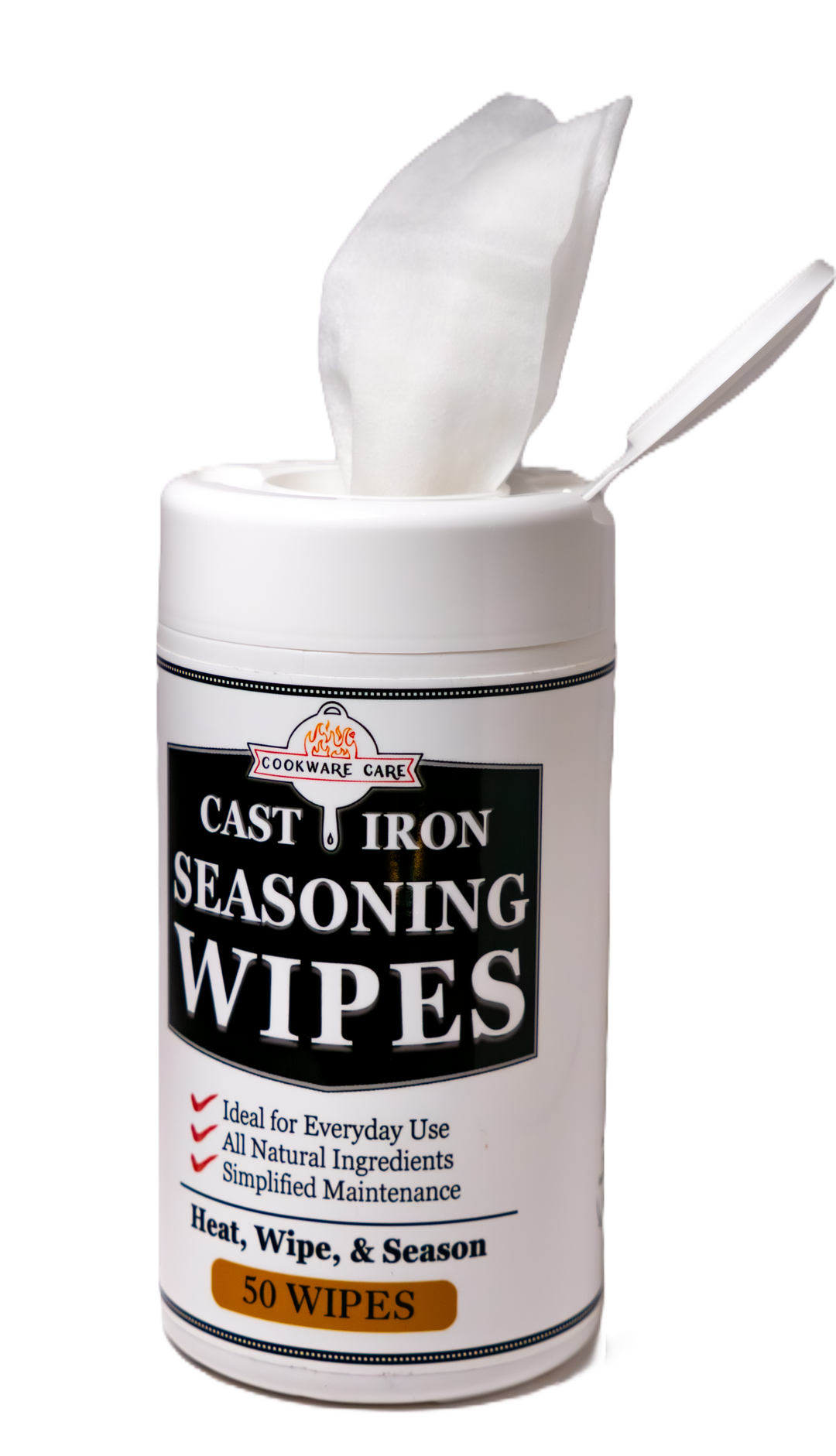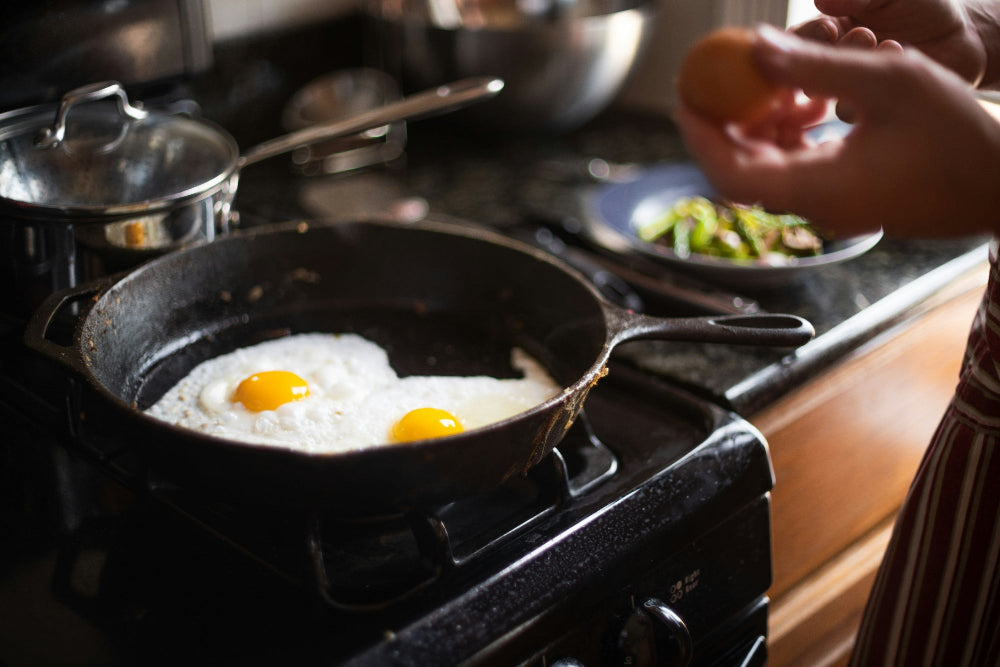Seasoning is the secret ingredient that transforms raw cast iron into a versatile, reliable, and long-lasting cooking tool. For many, it’s the defining characteristic that sets cast iron apart from other cookware. But what exactly is seasoning, and why is it so essential?
At its core, seasoning is a natural, chemical-free process that creates a durable, non-stick layer on your cast iron cookware. Unlike synthetic non-stick coatings that degrade over time, seasoning gets better with age and use, turning your skillet into an heirloom-quality piece. To understand its importance, we need to dive into the fascinating science behind seasoning.
Understanding the Structure of Cast Iron
To fully appreciate seasoning, it’s important to understand the unique structure of cast iron. Unlike stainless steel or aluminum, cast iron has a porous surface at the microscopic level. When viewed under a microscope, the surface reveals countless tiny crevices, peaks, and valleys. These pores serve a dual purpose:
- Oil Absorption: During the seasoning process, these pores allow oil to penetrate and bond with the metal.
- Layer Formation: As the oil hardens through heat, it fills in these gaps, creating a smoother, more uniform surface over time.
This porous nature is what makes cast iron so receptive to seasoning, but it also explains why unseasoned cast iron is prone to rust and sticking.
The Chemical Process of Seasoning
Seasoning is made possible by the interaction of heat and oil through a process called polymerization. While this might sound complex, it’s actually a simple but fascinating chemical reaction:
-
Step 1: Breaking Down Oil Molecules
When oil is heated past its smoke point (typically 400°F–500°F), its molecules start to decompose. The heat breaks the oil into smaller, reactive components that are eager to bond with other molecules. -
Step 2: Cross-Linking Through Polymerization
These reactive fragments interact with oxygen in the air and the iron surface, forming long chains of interlinked molecules. This process creates a dense, stable matrix that adheres tightly to the metal. -
Step 3: Hardened Layer Formation
The result is a hard, glassy film that smooths out the skillet’s surface and creates a protective, non-stick layer. This layer repels water, preventing rust, and reduces the adhesion of food particles, making cooking and cleaning easier.
Why Seasoning is Essential
Seasoning isn’t just about making food slide off the skillet effortlessly (although that’s a huge perk). It serves multiple critical functions that ensure your skillet performs at its best for decades:
- Rust Protection: Cast iron is highly reactive to moisture, and without seasoning, it will rust quickly. The polymerized layer acts as a barrier, keeping moisture and air away from the metal.
- Non-Stick Properties: Proper seasoning creates a low-friction surface that rivals synthetic non-stick coatings but is entirely natural and safe.
- Enhanced Longevity: Seasoning strengthens the skillet, making it more resistant to scratches, abrasions, and daily wear.
- Sustainability: Unlike disposable non-stick pans, a seasoned skillet can be restored and renewed indefinitely, reducing waste and making it an environmentally friendly choice.
How Seasoning Evolves Over Time
One of the most unique aspects of seasoning is its dynamic, evolving nature. A newly seasoned skillet may show imperfections—patchy spots or areas with slightly less non-stick performance. This is completely normal and part of the journey toward a fully seasoned skillet.
- Initial Use: The first few uses of a cast iron skillet help “break in” the seasoning layer. Foods high in fat, like bacon or fried chicken, naturally contribute to the polymerized layer.
- Building the Patina: Over time, each meal adds microscopic layers to the seasoning, creating a glossy, smooth patina. This patina is a hallmark of a well-used and well-loved skillet.
- Reinforcement Through Maintenance: Regular stovetop or oven seasoning sessions help reinforce the base layer, ensuring it remains strong and effective.
The Role of Heat and Oils
Seasoning is an intricate dance between heat and oil, and understanding this relationship is crucial for success.
- Heat: Heat provides the energy needed to break down oil molecules and trigger polymerization. It also drives the oil into the pores of the metal, ensuring a strong bond. However, the temperature must be carefully controlled—too low, and polymerization won’t occur; too high, and the oil may degrade before bonding.
- Oils: The choice of oil significantly impacts the quality of seasoning. Oils high in unsaturated fats, such as grapeseed, flaxseed, or Cookware Care’s Seasoning Oil Blend, are ideal because their molecular structure is more reactive and conducive to polymerization.
Seasoning as a Partnership Between You and Your Skillet
Seasoning isn’t a one-and-done process—it’s a partnership between you and your skillet that develops over time. Every time you cook with cast iron, you contribute to its seasoning, turning it into a one-of-a-kind piece of cookware.
The best part? Seasoning is forgiving. If your skillet develops rust or loses its non-stick properties, it can always be stripped and re-seasoned. This renewability is what makes cast iron such a sustainable and rewarding investment.
The Lifelong Benefits of Seasoning
Seasoning is both an art and a science. It’s a natural process rooted in chemistry, yet it holds an almost magical quality in the way it transforms cast iron into a durable, non-stick masterpiece. By understanding the science of polymerization and the importance of regular maintenance, you can unlock the full potential of your cast iron skillet.
As you continue to use and care for your skillet, its seasoning will only get better, delivering decades of delicious meals. With every layer of oil you apply and every meal you cook, you’re not just building seasoning—you’re building memories, family traditions, and a deeper connection to your kitchen.
Seasoning isn’t just about cookware; it’s about creating something that lasts a lifetime.






